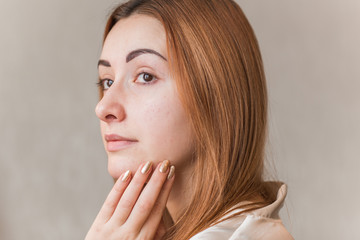Self Skin Exams
By doing a simple skin self-exam every month, you can improve your chances of finding a melanoma early. In addition to doing routine skin self-exams, you should have your skin checked regularly by a physician.
Topical Retinoids For Sun-Damaged Skin
Topical retinoids are a group of prescription medications used to reverse some of the damaging effects of sun exposure over time. These medications are also used to treat acne. The active ingredient in most preparations is tretinoin. This is now available as a generic preparation, other names are Retin-A and Renova (Renova is no longer available)
Squamous Cell Carcinoma
Squamous cell carcinoma (SCC) accounts for approximately 20% of all skin cancers. It usually occurs in middle-aged and elderly people, especially those who are fair-skinned. It is more common in people who have regular prolonged sun exposure.
Basal Cell Carcinoma
Basal cell carcinoma (BCC) accounts for over 75% of all skin cancers. It usually occurs in middle-aged and elderly people, especially those who are fair-skinned. It is more common in people who have regular prolonged sun exposure.
Other Skin Growths
There are many different types of skin growths, most are “benign”, which means that they are not harmful.
Wart Removal
Warts are rough bumps that are usually flesh-colored and tend to occur in areas of skin that are prone to trauma such as the hands, feet, elbows and knees.
Skin Cancer Types, Diagnosis, and Treatment
Skin cancer is an extremely common condition. There are three main types of skin cancer: Basal cell carcinoma, squamous cell carcinoma and melanoma.
Mole Checks and Self Skin Exams
Examination of the skin for suspicious moles is an important means of achieving early detection for skin cancer and other conditions.
Cryotherapy Aftercare
Cryotherapy uses liquid nitrogen to treat superficial precancers, warts, and other superficial skin growths. Read about the process, care, and treatment recommendations.
Actinic Keratoses
Actinic Keratoses are precancers that can be treated with a cream, requiring less of a need for more painful treatments over time and leaving the skin looking and feeling healthier. Learn best practices for treatment.
Biopsy Care
After your biopsy, it’s important to follow careful instruction to keep infections away. Learn more about restricted activities and proper appearance of biopsy sites.












